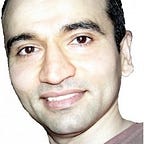Reassessing the Role of Established Concepts in a Dynamic World
Critical Thinking in a Changing World: Top 5 Debates to Consider
The 21st century presents unparalleled challenges, marked by technological disruption and a global shift toward a knowledge-driven society. In this dynamic landscape, the rigidity of traditional systems seems increasingly incongruent with contemporary needs. Nonetheless, dismissing these institutions and concepts as obsolete would be shortsighted, for they possess a foundational role and an innate capacity for adaptation.
Historical Context and Evolution
Traditionally, universities have been cradles of knowledge and innovation, governments the cornerstone of societal organization and welfare, and credentials a measure of competence and skill.
Linear education and standard work hours structured society, while GDP gauged economic health.
Yet, history teaches us that societal constructs must evolve to remain relevant.
The 21st century presents unique challenges: technological disruption, climate change, and a shift towards a knowledge-based economy. In this context, the rigidity of traditional systems appears increasingly out of sync with contemporary needs.
Redefining Relevance
However, dismissing these institutions and concepts as ‘useless’ overlooks their foundational role and adaptability.
Universities have become hotbeds for technological and social innovation, governments are slowly adapting to digital governance, and new educational models are emerging.
Work norms are being redefined in the face of a gig economy, and alternative measures to GDP are being considered to assess societal well-being more holistically.
Top 5 Critical Thinking Debates
- Universities in the Age of Information Overload:
Are traditional university structures and curricula still effective in fostering critical thinking and innovation in an era where information is ubiquitous and freely accessible? - The Role of Government in a Digitally Connected World:
How should governments evolve in their structure and approach to effectively manage and serve increasingly digital and global societies? - The Validity of Traditional Credentials:
Do traditional credentials still hold value in a world where skill sets are rapidly changing and alternative educational paths are emerging? - Linear Education vs. Lifelong Learning:
Is the traditional linear education model still relevant, or should we shift towards a model of continuous, lifelong learning to keep pace with technological advancements? - Economic Measures of Success:
Is GDP an adequate measure of a country’s success in today’s world, or should we include other factors like environmental sustainability and social well-being?
Top 5 Questions and Responses
- How Can Traditional Education Systems Adapt to Foster Innovation? Response: Integrating technology, promoting interdisciplinary studies, and emphasizing practical, real-world problem-solving can transform traditional education into a more dynamic and innovation-oriented system.
- What Is the Future Role of Governments in Increasingly Autonomous Societies?
Response: Governments might evolve to become more of facilitators, focusing on creating frameworks for innovation, ensuring equitable access to technology, and safeguarding digital rights and privacy. - Are Standard Work Hours Obsolete in Today’s Economy?
Response: The rise of the gig economy and remote work suggests a shift towards flexible work hours, tailored to individual productivity patterns and work-life balance needs. - Can Universities Survive the Digital Disruption?
Response: Universities can survive by becoming centers of lifelong learning, offering modular and flexible learning options, and partnering with industries for research and practical exposure. - Is There an Alternative to GDP That Better Reflects Societal Well-being
Response: Alternatives like the Human Development Index (HDI) or Gross National Happiness (GNH) offer more holistic views of societal well-being, including factors like education, health, and environmental quality.
In conclusion, while the 21st century brings unprecedented challenges, the adaptability of established institutions and concepts remains crucial, offering the potential to bridge the gap between tradition and the demands of a rapidly evolving world.
